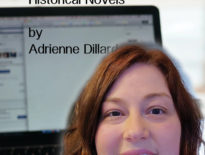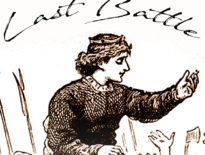In this month's expert talk, Heather R Darsie, author of "Anna, Duchess of Cleves", looks at what Anne of Cleves' early life in Germany was like.
Join Heather in the Tudor Society chatroom for a live Q&A session on Anne of Cleves on 23rd January. Click here for more details and time.



Heather, I enjoyed your talk as Anna is and has been my fav wife. I have always believed (don’t ask me how I reached my conclusion) that Anna would have given H8 several sons. Just a hunch!! As I’ve read most all of the recent studies of Anna, I will get yours.
Thanks again,
Bill Wolff, Novato, California
Loyal Tudor Society Member
Thank you, very much, Heather for this beautiful and illuminating talk on the childhood and early life of Anna of Kleves and the cultural settings.
It’s very sad that people in modern times bring their misconceptions and modern ideas to history. It was very different here as it was everywhere and we must acknowledge how different cultures express themselves but without making judgements based on the 21st century and English xenophobia. I really don’t understand why with so much information about now that people still think everyone couldn’t read in the sixteenth century, wallowed in the mud and were ignorant of life. It really actually shows the ignorance of the 21st century, not of those who lived 500 years ago. People don’t just make rash judgements about noble lives of women in Germany but also here. The number of people who think Jane Seymour and Kathryn Howard had no or little educational ability is quite staggering. It’s because most people only know about Anne Boleyn and extremely rarely overly educated women like her and Katherine of Aragon or Katherine Parr and Meg Roper, that they think any other woman wasn’t educated. What we must realise is that the classic education, given only to men of learning normally received by any noble woman was extremely rare. Anne Boleyn was extremely rare in everything she did and achieved. The majority of ladies received an education which was needed to run a household. They had to be literate in order to understand the accounts. They learned things of significance to their status and life, so running a farm, brewing, the skills of household management, the art of making a beautiful piece of fabric work, making clothing, preserving food, husbandry and numerous other things, again skills for life. They may learn dancing and music, they may learn a language, they certainly had religious instructions, they learned everything they needed to be a wife and mother and most women had to be obedient to their husbands. A few broke the mould but most gentle women and nobility or yeoman women had some education. This improved as the century progressed and of course it varied from country to country. The problem is we see one or two examples of highly educated ladies with the equivalent of a higher degree today and we think if everyone else didn’t, that they were not educated. I have read your biography and it’s very enlightening, especially on the mythology of the annulment.
Thanks for drawing us into Anna’s world and introducing us to a real lady of culture and good common sense.
Thank you! A fascinating look at what life would have been like for Anne in Germany. I appreciate your time. Great talk. Michelle t